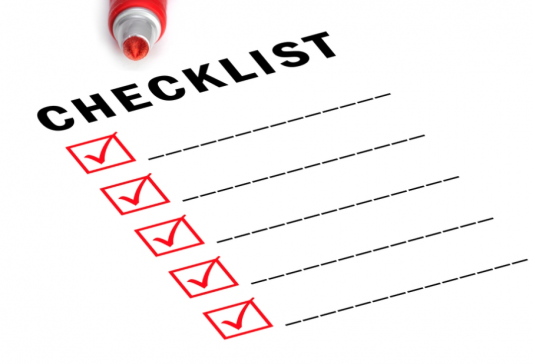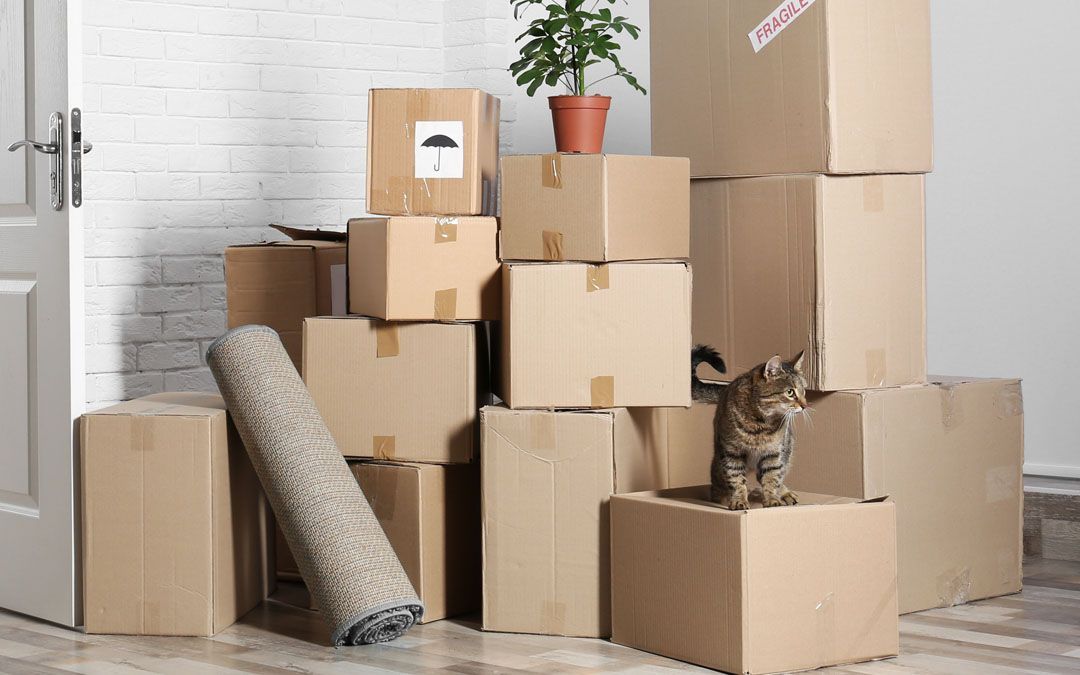Keep Up To Date!

L & J Home's Top Tips for Unpacking in Your New Home On arrival at your new home, make sure you carry out a walk-through with the team or team leader. This will ensure that all of your furniture is placed in the correct rooms and relieves the stress of you having to move things around later when the rooms are full. If your team have any concerns about over filling the rooms they will let you know. Moving house can be stressful and the last thing we want is for you and your family to feel overwhelmed. Where possible, we like to arrange your furniture and boxes so you can easily find things and unpack to help you settle in quickly to your new home. Ideally, we aim to leave your lounge and bedroom with limited boxes so you can sit down or go to bed relaxed and not be surrounded by things that need sorting. Where to start with your unpacking Start with the essentials. Unpack your cleaning items just in case you would like to wipe any cupboards or countertops down before emptying your boxes Unpack the items you need immediately, such as your essential kitchen box, toiletries, a change of clothes, and bedding. This will make it easier to settle into your new home and get a good night's sleep. Focus on one room and box at a time. All of your prelabelled boxes will be in their designated rooms. Start with the most important rooms such as the kitchen, bedrooms and bathroom. Start by unpacking one box at a time so you’re not surrounded by multiple open boxes and flatpack the boxes as you finish with them. This will help you stay organised and avoid feeling overwhelmed. Kitchen. Once your fridge/freezer has had time to ‘settle’, turn it back on along with your cooker and any other appliances you have. Unpack your perishable items and your kettle, toaster and tea/coffee! Take breaks. Unpacking can be tiring, so take breaks throughout the day. This will help you stay focused and avoid feeling overwhelmed. Ask for help. If you have friends or family who are willing to help you unpack, don't be afraid to ask. This can make the process go much faster and easier. Most importantly... Enjoy your new home! Once you're finished unpacking, take some time to relax and enjoy your new home. You've earned it!

Top tips for moving with children Before you move Whether you are moving down the road or to a completely different county, moving house can be confusing for children. Whatever age they are, they would have strong attachments to their surroundings as everything is familiar to them. To ensure they’re not worried or anxious about their new house and everything changing, you could: Let them know your plans to move house as soon as you can. Children need time to think and prepare for something like this. They will likely have questions for you so be ready for this, encourage them to talk about it and be positive with your answers. If you are unsure how to answer, tell them you will find out, making sure to get back to them with an answer. Let them know where you are going, when you are moving and why, again, making sure this information is all positive and exciting. Talk to them about the benefits of the house move. If they will be attending a new school, let them know about all of the new activities they can get involved in and any sports teams or clubs they could join. Make sure they are aware of what they will gain from this move. Younger children may like to do some roleplay to help them understand. Encourage them to ask questions about what they may be worried about. Show them the photos and videos of where you are moving to. If you are moving long distance, show them the route you have to take and what you may see along the way. It is a good idea to plan to move outside of term time if you have children at school age as this reduces the interruption to their schooling as they adjust to their new surroundings. This is a particularly good idea if they are changing schools so they’re not starting right in the middle of a term. However, doing this means holidays are a very busy time so it is best to ensure you are booked in early for removals. Stay positive about the move, even if the circumstances aren’t so. Try to keep any stressful conversations away from the children as much as possible as this may make them nervous. Get the children involved in planning for the new house. If you are buying new furniture, paint or accessories, ask them for their opinion. Let them plan their new bedroom. If you are moving long distance, plan for them to keep in touch with their friends. Older children could write an address book with the details of the friends they wish to stay in contact with. Let them say goodbye to those around them. Organise a going away party with friends and family to say goodbye. During the move Ask your removal company about packing services. You may struggle to fit packing in and around family life. Having a removal company come in to do your packing can be an affordable way of avoiding extra stress. If you want to do your own packing, make a plan of what you’ll need and when so you know what can be packed early and what has to be left. Try to keep organised as you go. Pack an essentials box. An essentials box allows you to keep everything you need to hand, and also pack an arrival bag for your first night. Let the children help you by choosing what they would like in it, things they use or will need on a day to day basis. Plus extra bits to keep them entertained. This can range from snacks and drinks to toys and books. If you pack a tablet, make sure their favourite shows are downloaded just in case there is no Wi-Fi setup yet. Make sure to have clean clothes and toiletries. Think about where the children will be. It is usually sensible to keep any children away from the house on moving day for both Health & Safety reasons and practical reasons but sometimes it is helpful by seeing what's happening around them. If yo u plan to keep the children with you, here are a few things to plan and think about: Plan for entertainment as they will need something to do for the day. Things like colouring books, games or their tablet, Older children could have age appropriate jobs to do such as cleaning, labelling boxes or unpacking their bedroom. If it is summer, make sure to have some outdoor toys and games for the new garden. Think about Health and Safety by letting your movers know there are children on site. Try to keep them away from the vans unless invited by the team to come and have a look. It is really important not to rush children on moving day. Although you may feel it is best to get everything packed and ready to go as quickly as possible, children can be emotional and may not accept the changes happening around them so easily. After the move W hen you have arrived at your new house, there is lots you can do to keep everyone, especially the children, positive about the changes and help them to settle in: Invite your new neighbours, including the children if they have them. Organise some games to encourage the children to get to know each other. Unpacking your items will help you to settle into your new routine. After you have unpacked the essentials, prioritise unpacking the children's things so they feel at home as quickly as possible. Let the children help set up their rooms, this will help them to feel more comfortable and excited. Ask them where they would like their furniture. Help your children make new friends by getting involved in the local community and school events. Make sure they stay in contact with their old friends too by writing letters or emails. Video calling is a great way to keep in touch with friends and makes them feel closer than they are if you’ve moved long distance. When you move house, it is very easy to let it change your routine as you fit in unpacking, decorating etc. However, it is important to make sure children have their routine still in place to keep them calm and happy. Moving house with children isn’t easy, but taking their needs into account and involving them will help clear some of the worries. They may even enjoy it!

UK house prices predicted to decrease in 2024, according to analysts and lenders, while the cost of renting will continue to rise. The government's official forecasters has said property prices were most likely to drop by nearly 5%. Pricing will be crucial if you’re selling a home in 2024 Agreed sales are now 10% lower than they were at this time in the ‘normal market of 2019’. Throughout 2023, there were price reductions of 39% of properties compared to 29% in 2022 and 34% in 2019. The average time it takes to find a buyer has gone up from approximately 45 days in 2022 to approximately 66 days currently, however, if competitive on price they have been able to find someone quicker. It is recommended to work with your estate agent to not start too high. If you start with a competitive price, you shouldn't have to reduce it further down the line. Mortgage Rates Since July 2023, mortgage rates have fallen regularly. This has provided more stability and certainty about the type of mortgage offer they are likely to receive as well as the cost of it. The average 2-year fixed rate is currently at 5.48% and the average 5-year fixed rate is at 5.07% (as of 12th December 2023). The current market is much calmer now compared to recent events albeit still high. It may now be a better time for houses to return to the market after being pushed back during 2023. According to BBC News - The UK's biggest building society, the Nationwide, said the housing market was likely to be subdued next year. "If the economy remains sluggish and mortgage rates moderate only gradually, as we expect, house prices are likely to record another small decline or remain broadly flat over the course of 2024," said Robert Gardner, Nationwide's chief economist. More specifically, he forecast UK house prices would remain unchanged or fall by up to 2% on average in 2024. The government's official forecaster, the Office for Budget Responsibility (OBR), said at the time of the Autumn Statement in November that it expected house prices to drop by 4.7% in 2024. The Halifax, part of Lloyds Banking Group - the country's biggest mortgage lender, has forecast a fall of between 2% and 4%, but highlighted the same reasons. "With the combination of cost of living pressures and interest rate levels that are still much higher than even two years ago, we will likely see continued mild downward pressure on house prices," said director, Kim Kinnaird.

Moving Checklist Here is a checklist of things to think about and do when moving house: Confirm the date of your move. Firstly, you will need to get your moving date officially confirmed by your conveyancer and the house sellers. If you are renting, you may be able to spread moving in and moving out over a few days. If you do it like this, you can clean and get any work done before moving in. If you’re at the end of a chain, you may be waiting a while for the other transactions to go through. You should find out where you are in the chain and plan accordingly. Give notice to your Landlord (if renting). If you are in a rental property, you will need to let your landlord know the exact day you will be moving out. Hopefully, this will line up with your end of lease to avoid multiple payments. Contact Utility Suppliers. Let all of your suppliers know you’re planning to move out. Electricity, gas, phone and broadband suppliers will all need to know when you're leaving the property. It is highly likely you will be moving your phone and broadband across to your new home. This can take several weeks so ensure to do this with as much notice as possible. Take a final meter reading in your property and pass this onto the right suppliers. Taking pictures might help as it will include a timestamp to prove the exact reading. Have a clear out. This is the best time to have a sort through your clothes and belongings to decide what is worth keeping and what could be sold or donated. This will save time, effort and money reducing it down before you move. Make a list of where everything is. Ask the sellers of your new property to tell you where the following are: Stopcock Instructions for appliances Gas and electricity meters Thermostat Fusebox If you are selling, write up a list of where the important things are in your home and leave it for the people moving in. Pack everything and label boxes. This should be easier now if you have had a clear out! When packing everything up, label all of the boxes with the room and contents to make it much easier when unpacking. Pay your bills. Settle up final bills and council tax on your current property. Contact the following people to inform them of your new address: Tell your friends and family Your workplace Bank, Insurance and Pension Council and Electoral Roll TV Licensing Doctors and Dentist DVLA National Insurance It may be useful to sign up for the post redirection service, this requires at least 5 days notice to set up. *TIP- Don’t forget to remove your old address from online retailers* Grab your essentials. You’ll need your essentials for your first night in your new home. We recommend to make up a box or two with the following to hand: Kettle, Mugs, Tea, Coffee, Sugar etc. Cleaning products Chargers Toilet roll, Kitchen roll Bedding Make sure to have all important documents to hand, such as mortgage paperwork and ID. Move into your new home! Do a deep clean before you unpack everything. This is the easiest time to clean the carpets and scrub the tiles. Unpack one room at a time, we recommend starting with the kitchen. Check utilities are up and running. Make sure you have the keys for every door and window. Find out what days the bins are collected. For our full, downloadable check list, please click here .

Here are some tips for moving house to ensure a seamless removal process. Booking in advance. It is important to book your removal company in advance to avoid any disappointment. The best way to choose a removal company that suits you is to search for local companies, look on their websites and read their reviews. Declutter before packing. If you have lots of clothes or belongings that you no longer wear or use, why not consider donating them to make your packing easier. This would save time and money. Why pay extra for things you plan to get rid of after moving? You could save yourself even more time and stress if you choose our packing service. ‘Survival Kit / Essentials Box’. On removal day, we will load everything that is packed into the van. We always recommend you pack a bag of essentials for you and your family to get you through moving day and your first night in your new home. Packing Supplies. Packing materials are the most important part of your move. Make sure to have high quality boxes and make sure you have enough of them. Please see our contact us if you would like information about our box packs. If you are interested in purchasing your materials directly from us. If you choose our Packing Service, we will bring all the materials required on the day. Materials required include: Boxes Labels Tape Paper Bubble Wrap Pens Tips for unpacking. When your items arrive at your new home, make sure to do a walkthrough with your removal team. We like to ensure your items are put in the correct place however, we also do a walkthrough at the end should you have changed your mind. Before unpacking your boxes, you will want to clean all of the areas such as worktops and cupboards. Start by unpacking your essential boxes first. If you plan to have an evening meal in your new home on the first night, begin to unpack your kettle, mugs, teabags/coffee, cups, plates, cutlery and anything else you may need for your meal. Beds are also important to set up first. Make sure to locate your bedding, toothbrushes, toothpaste and clothes for the night from your essentials box. Once you have unpacked your essential items, begin to undertake one room at a time. If the boxes have been labeled correctly, they should all be in the right room to make this easier for you.

A good option to take when moving your pets is to take them to a friend/family member to take care of during your house move. This way, your pets won’t get in the way. This tends to be a better option than putting them in a cage as they will be less stressed and worried and they will also be able to go to the toilet when needed. Make sure that they have plenty of food and water throughout the day. DO leave packing your pet’s things until the very end. The presence of familiar toys and blankets will comfort your pet. Do not wash their bedding until a couple of weeks after the move so that there is something familiar-smelling in the new house. DO make sure your pet’s ID tag or microchip details are up to date and include details of your new home address. In the instance your pet decides to take a walk around your new neighbourhood, it is important that they can be identified, should they get lost or try and return to your previous home. DO give them plenty of reassurance and attention, both during and immediately after the move. DON’T feed them just before putting them into the car as they are more likely to get car sick. Like humans, pets can also suffer from travel sickness, so if you’re likely to be in a car for a long time, opening a window or two would make it a bit easier for your pet. DON’T let your pet loose in your new garden without checking it is secure first. Make sure to check all perimeter fencing and walls, looking out for gaps or broken paneling. When you do let your pets out to explore your new garden, go outside with them until they’re more confident in their new surroundings. DON’T assume your pet will immediately adjust to your new home. Pets are creatures of comfort and sometimes they can take a little while to settle; allow them time to relax and become familiar with their new surroundings. Try not to leave your pet on their own for too long until they are fully settled as this can cause anxiety. DON’T be mad at them if they chew things or aren’t house trained within the first few days. Change takes time to adjust to and dogs in particular can become very anxious and stressed from moving. Monitor your pet’s behaviour and make sure they are in an area with limited furniture to begin with. DON’T avert from your usual walking and feeding routine if you can help it. Sticking to your pet’s daily routine before moving and then continuing it once you have moved will make the transition a lot more manageable and will make your pets feel more at ease. Talk to your previous neighbours about your move in case your pet visits, as it is not uncommon for your cats to return to their old home, especially if you’re only moving a short distance away. When you arrive at your new home, find somewhere quiet that’s out of the way where pets can sit comfortably while you move in. Make it comfortable and help them feel at home with their familiar things.

Making sure you’ve chosen the right company for your house move can be stressful but it doesn’t have to be! When looking online, you’ll be inundated with removals companies that all offer different services and it can be difficult to know which company to pick. There are some key questions you can ask the removal companies such as; What is included in my quote? Make sure you ask for a detailed invoice so you know what is and isn’t included in your quote. This way you know that there will be no hidden fees either. Is dismantling included? Are there additional fees if there are delays on the removal day with keys being released? Are there any items you won’t take? Excessively heavy items Flammable goods, such as gas bottles High value items that may require additional insurance cover Your removals company should have a full list of exclusions in their terms and conditions that may invalidate your insurance cover. When do I need to pay? Different providers have differing payment terms. Some companies require a deposit to secure your booking with the remaining balance due on completion. Others may require full payment prior to the removal taking place. It is important to have a clear understanding about how and when you need to pay for the removal company’s service. *Additional Tip* Whilst you’re rightfully busy planning your house move. Remember there have been a number of removals taking place in your area and the area you are moving to. This means, you can learn from other peoples moving day and experiences. When you have narrowed down your preferred removal companies, take some time to read their reviews online for example, Google, Facebook, Removal Reviews etc. In some cases, you will see it’s not best choosing to move with the cheapest removal company.

The day of your move can be stressful, and there might be some important things forgotten on the day. To avoid this, we’ve made a short list of things you should remember to do on your move day, before you hand back your keys Take final meter readings . This is key in making sure you are not overcharged by your suppliers after you leave! You should also remember to take meter readings when you arrive at the new property as well Keep hold of your essential items. You should make sure to keep anything you would like kept on your person out of the way of your movers, just so they do not get packed into the van. You could put your items into a car or into an empty section of the house, just make sure you notify your movers of what not to take. This can be items like paperwork, electronics or certain kids toys that you don't want to get lost in the madness! Pack your kettle last. This way you can start the day with a nice cup of tea! It is also worth keeping some drinks or snacks around for yourselves, as the movers will be taking your fridge! Final Walk through. Before you leave the property make sure you do a final walk round to check that no items have been left behind and that things are generally clean and tidy, ready for the new owners Try to Relax! Your movers should be swiftly and safely moving your items, so the only thing you need to worry about on the day is your keys. Try and find some time to relax and have a drink, they say moving is stressful but it doesn't have to be! There are also things that need to be done before the day of the move. We have made a handy list to help you keep on top of this and to make sure nothing is forgotten! Just give us a call on 01752 946732 , and we can send you a copy so you can start planning

How to prepare your fridge freezer for moving day: Refrigerators are expensive, you should always know how to prepare them properly and safely. Your first step would be to unplug your refrigerator and clean it. To do so, you will need to take all of the contents from inside your fridge out and pack them into a cool box to maintain your content’s freshness or put them in a bin. The best way to clean the surfaces inside is by using a mixture of water and baking soda. Use a microfiber cloth to scrub every inch. Once you have fully cleaned your fridge, you should then attempt to melt and ice to prevent any water leaks whilst moving. If your refrigerator has glass shelves, take them out and wrap them in bubble wrap or anything to protect them as they are more than likely to move whilst in transit if they are still in the fridge. Once your refrigerator has been defrosted, you should then unplug it from the main power supply and roll up the plug cable and tape it to the back of the fridge a few hours before your remover's scheduled time to be at your property. Water filters and ice makers: If your refrigerator has any kind of filter, it should be disconnected, if you don’t know how to, the information will be available in the manufacturer's manual. American Fridge Freezer: With an American fridge freezer, we often require that the doors have been removed. This reduces weight, as most of the weight is in the doors. Also, it will then be a lot easier to get through the new property as it will be a lot thinner and not as wide. Rest time: Once your refrigerator is in your new property and in the correct place and position you would like to keep it, you would need to let the gases settle which means that you should not plug it in for around 4-6 hours. Once it has settled for a while, then you’re ready to plug it back in and put your contents back inside.

How to prepare your washing machine for removal without getting in a spin! How to drain and disconnect your washing machine Lay an old towel on the floor to catch any excess water and have a bucket handy to drain the water supply hoses. Disconnect the power supply and unplug the machine Turn off the water supply valves Disconnect the water supply hoses and drain the excess water in to your bucket Ensure the rubber washers in the water supply hoses don’t get lost. We recommend sealing a plastic bag over the connect to prevent this Place the hoses in to the drum of the washing machine using old towels to protect them Leave the water drain hose in the machine but empty any excess water before moving - tape or secure this hose upright on the back of the machine How to prepare the washing machine for your house move Leave the door open for 24 hours to allow the drum to dry before your move Clean the machine inside out. It’s important to pay extra attention to the rubber seals which often collect excess water Install your washer drum locks which are usually found on the back of the washing machine. These will help protect the drum during transport. If they’ve been misplaced, you can usually purchase them from the manufacturer.











